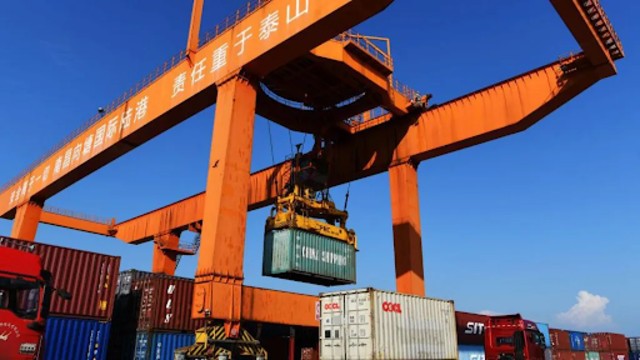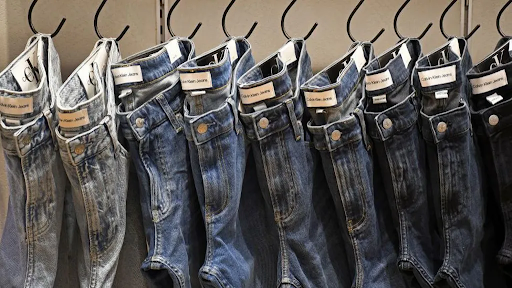
US-China trade war intensifies with new US tariffs. Getty Images
The trade war between the United States and China has intensified as Beijing retaliates against the latest US tariff measures. In response to President Donald Trump's 10% tariff on all Chinese imports, China has imposed new taxes on specific American goods.
This latest move is part of an ongoing trade dispute between the two economic giants, which began in 2018. While Trump has expressed willingness to negotiate with Chinese President Xi Jinping, China’s planned measures set to take effect on February 10 could have significant implications.
Tariffs on US Fossil Fuels

China imposes tariffs on US fossil fuel imports. Getty Images
China has announced new import taxes on American fossil fuels, imposing a 10% tariff on coal and liquefied natural gas (LNG) and a 15% tax on crude oil. Companies looking to import these resources from the US will now face additional costs.
Despite being the world’s largest coal importer, China relies mostly on supplies from Indonesia, Russia, Australia, and Mongolia. While its LNG imports from the US have risen significantly since 2018, overall fossil fuel trade between the two nations remains minimal. US oil accounted for just 1.7% of China’s total crude imports in 2023.
Trade economist Rebecca Harding suggests China can easily shift its energy purchases to Russia, where it has been acquiring oil at lower prices amid the Kremlin’s war effort. Meanwhile, the US, as the world’s top LNG exporter, has other major buyers, including the UK and the European Union.
Impact on Agricultural Machinery and Automobiles
In addition to energy tariffs, China has introduced a 10% tax on US agricultural machinery, pick-up trucks, and large vehicles. However, the impact on consumers may be limited, as China primarily imports cars from Europe and Japan rather than the US.
China has been investing heavily in its agricultural sector to enhance food security and reduce dependence on foreign machinery. This new tariff appears to support Beijing’s push for greater self-reliance in key industries.
According to Julian Evans-Pritchard, head of China economics at Capital Economics, the targeted US goods represent around $20 billion in annual imports—only 12% of China’s total imports from the US. In contrast, the US has imposed tariffs on over $450 billion worth of Chinese goods.
Evans-Pritchard believes Beijing’s response is strategic, aiming to send a strong message without causing severe economic damage.
China’s Non-Tariff Measures: Google Probe and Business Restrictions
Beyond tariffs, China has launched an anti-monopoly investigation into Google, though details remain unclear. Google’s search services have been blocked in China since 2010, but the company still operates in the region through app distribution. Given that China accounts for only about 1% of Google’s global revenue, the impact may be limited.
Beijing has also added PVH Corp, the parent company of Calvin Klein and Tommy Hilfiger, to its "unreliable entity" list. This designation could make business operations in China more challenging, with possible sanctions, fines, and visa restrictions for foreign employees.
The move mirrors the US government’s own "entity list," which restricts Chinese firms from purchasing American products without special approval. Analysts suggest this is part of a broader strategy of economic decoupling between the two nations.

Export Controls on Rare Metals
China has further tightened trade restrictions by imposing export controls on 25 rare metals, which are critical for military, aerospace, and electronics industries.
China dominates the global supply of refined rare metals, producing nearly 90% of the world’s output. The restricted list includes tungsten, a key material for aerospace applications. However, Beijing has not placed restrictions on US-supplied high-end semiconductor materials, pharmaceuticals, and aerospace components.
Past experiences suggest that these restrictions could lead to delays as companies navigate China’s complex licensing process. In response, Trump has proposed a deal with Ukraine to secure rare earth metals in exchange for $300 billion in financial aid.
What’s Next?
While the US and China continue their trade standoff, both sides appear to be making calculated moves to minimize domestic impact. Whether this leads to further escalation or a potential agreement remains to be seen.















